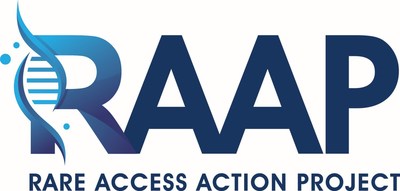RAAP Policy Study Release Solving for Access and Affordability: PDABs are Not the Answer
PR Newswire
WASHINGTON, Aug. 6, 2025
WASHINGTON, Aug. 6, 2025 /PRNewswire/ -- The Rare Access Action Project (RAAP), today released its policy study on Prescription Drug Affordability Boards (PDAB). RAAP has been clear for years that PDABs are not the solution to helping patients living with a rare disease lower the cost of prescription drugs. This study, "Solving for Access and Affordability: PDABs are Not the Answer," details the problems PDABs create and offers alternative policy solutions to improve access and affordability for critical rare disease drugs. (https://www.rareaccessactionproject.org/s/RAAP-PDABs-Arent-Solving-for-Access-and-Affordability-July-2025.pdf)
"RAAP is excited to release our study on PDABs. While the talking points sound good, theory has not matched reality and the implementation of PDABs has revealed difficulties in achieving its lofty goals and has led to concerns about unintended consequences. A quick legislative win creating a PDAB can, overall, mean little to the state or its residents because the healthcare system is incredibly complex, and savings may prove illusive. New Hampshire, for example, enacted a PDAB in 2020 and repealed it in 2025," said Michael Eging, Executive Director of RAAP.
Facts will show, PDABs are not necessarily equipped to foresee the unintended consequences of their actions, particularly for patients with rare diseases, providers, hospitals, health centers and community pharmacies. Nowhere is this more apparent than with the PDABs that are moving towards implementation of Upper Payment Limits (UPLs). While the return on investment for PDABs is questionable overall, the challenges of implementation are considerable and the pay-off for patients is limited at best – particularly as we consider the use of UPLs.
Patients, particularly those with rare diseases, need policies that improve access and affordability, not put them at risk. Recommended actions:
- Pause implementation or expansion of PDABs until rare disease impact assessments are conducted.
- Require that any affordability review includes direct input from rare disease experts and patient advocates.
- Exclude orphan drugs from price-setting jurisdiction.
- Mandate transparency in PDAB modeling, especially the data used in rare disease determinations.
"PDABs, as currently structured, risk trading access for appearance. They offer a cynically opportunistic political solution with devastating personal consequences. Any well-meaning effort to control costs must not come at the price of human lives or eliminate incentives for innovation in rare disease treatment," concluded Eging.
RAAP, the Rare Access Action Project, is a coalition of life sciences and patient stakeholders that explore creative policy solutions to address structural issues in access and coverage. Our priority is to help ensure rare disease patients have access to the care and treatments they need. RAAP is a registered 501 c4 non-profit organization.
![]() View original content to download multimedia:https://www.prnewswire.com/news-releases/raap-policy-study-release-solving-for-access-and-affordability-pdabs-are-not-the-answer-302523379.html
View original content to download multimedia:https://www.prnewswire.com/news-releases/raap-policy-study-release-solving-for-access-and-affordability-pdabs-are-not-the-answer-302523379.html
SOURCE Rare Access Action Project (RAAP)


